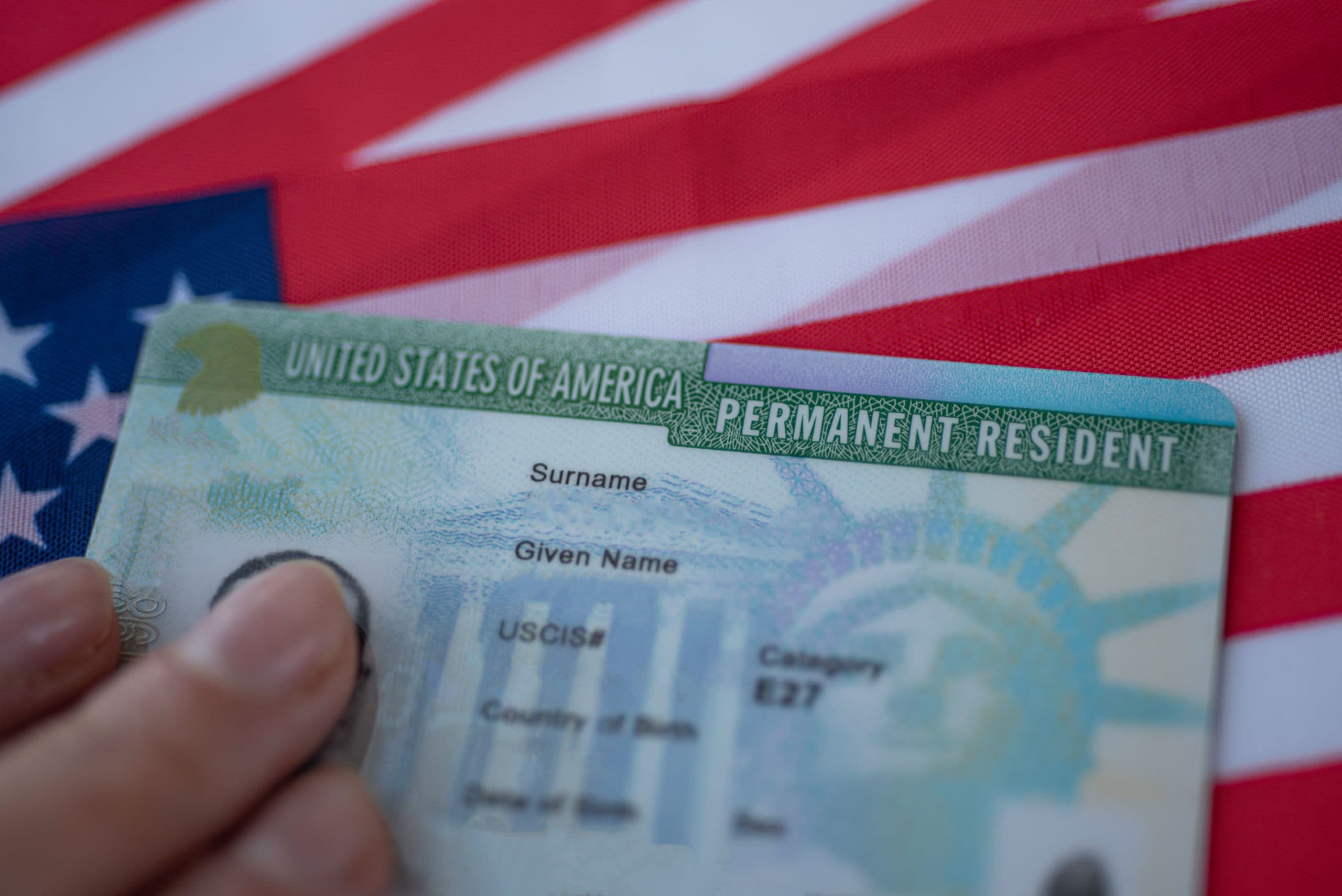Published September 23, 2020
By: Richard Hanus, Esq.
How do I get a green card in the U.S.? It’s one of the more common questions an immigration lawyer gets asked. The answer is many layered and involves dozens of variables, but in the end there are some basic principles that the asker of this question will want to know about, and here they are.
First, what is a green card? It’s a document evidencing a foreign national’s lawful permanent resident status in the U.S., a status allowing for pretty much unfettered lifetime of freedom to live and work in the U.S., in any location in the U.S. and for as long as they please. The big downsides include: 1) you cannot vote in a US election, 2) you cannot travel outside the U.S. for unlimited, extended trips or reside outside the U.S. and 3) you could be subject to deportation proceedings for engaging in certain criminal or other unlawful activities.
Green cards are available for applicants present in the U.S., or residing abroad. For an applicant present in the U.S., a green card is generally available by way of an I-485 Application for Adjustment of Status, before U.S. Department of Homeland Security/Citizenship and Immigration Services. For a foreign national residing overseas, it’ll be by way of application for immigrant visa before a U.S. consular post – an office falling within the U.S. Department of State. These above applications are the final ones and the culmination of a multi-step process that might span anywhere from one to 25 years, depending on the legal avenue to green card at play.
There are several dozen ways a foreign national can obtain a green card in the U.S. Some of these options are quite obscure and rarely used and others are more common and familiar to the public. Below are the most popular green card avenues a foreign national has available to obtain lawful permanent residence in the U.S.
First, by way of a family relationship:
- A U.S. Citizen’s petition for their spouse – assuming the marriage at play is sincere and genuine, lawful permanent residence is attainable,
- Adult U.S. citizen’s petition for their under 21 year old child,
- Adult U.S. citizen’s petition for their parent,
- A lawful permanent resident’s petition for their spouse – again, assuming bona fide marriage
- A lawful permanent resident’s petition for their under 21 year old child,
- Adult US citizen’s petition for single, adult child, married adult child (including their family) and sibling (including their family)
The second most popular path to green card is by way of a job offer or professional expertise, including:
- Employer petition for a professional, skilled worker or unskilled worker, and where the unavailability of U.S. workers to fill the position must be proven,
- Employer petition for Registered Nurse or Physical Therapist, although proving shortage of U.S. workers is not required,
- Multinational company’s petition to have an Executive or Manager continue their role in the U.S.
- Professionals, artists, athletes, scientists, or anyone who can demonstrate their “extraordinary ability” in their particular field and having received awards and recognition of major significance, or that their prospective contributions to the U.S. will serve the “national interest”,
Foreign nationals can also achieve lawful permanent residence by way of a successful defense in removal proceedings, such as being granted Cancellation of Removal relief by an Immigration Judge. This avenue requires the presentation of evidence of more than 10 years continuous presence in the U.S., good moral character and proof of the extreme and unusual hardships your U.S. citizen or resident parent, spouse or child would experience in the event of the foreign national’s removal.
Victims of certain crimes who are living in the U.S. and are cooperating in the prosecution of the perpetrator can qualify for U visa status, a status that establishes a straightforward to lawful permanent residence in the U.S. Generally, after holding U visa status in the U.S. for 3 years, a foreign national is eligible to be considered for lawful permanent residence.
Finally, foreign nationals in the U.S. fearing return to their home country due to persecution or harm they fear on account of their race, religion, political belief or social group may qualify for asylum. Asylum can be obtained either as a defense to removal proceedings or by way of an affirmative application before the U.S. Department of Homeland Security. A year after being granted asylum, a foreign national is eligible to apply for lawful permanent resident status.
Individuals looking for straightforward, realistic feedback on green card options should consult an experienced and reputable immigration lawyer. The Law Offices of Richard Hanus has assisted individuals and companies with all of the above green card options, and others, for close to 30 years, so give us a call and we will provide you with the insight you need to make the most informed decision.
PUBLISHED September 23, 2020– “IMMIGRATION LAW FORUM” Copyright © 2020, By Law Offices of Richard Hanus, Chicago, Illinois

